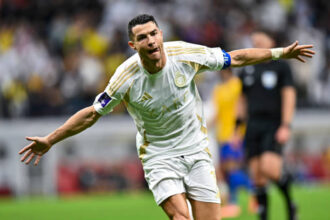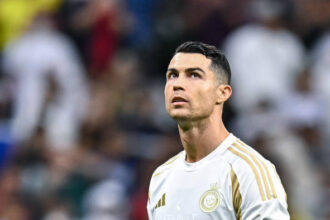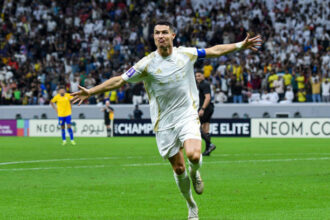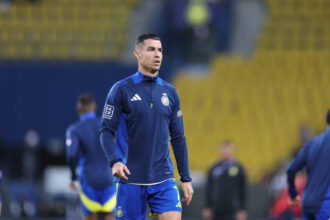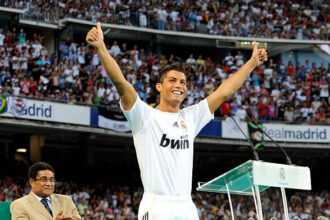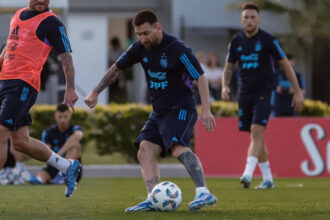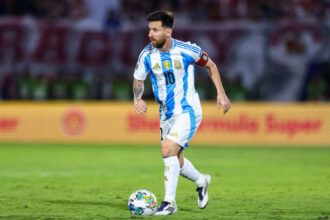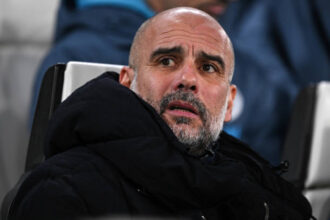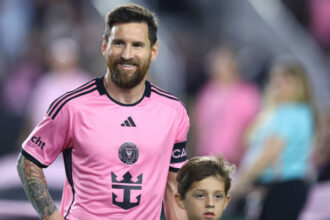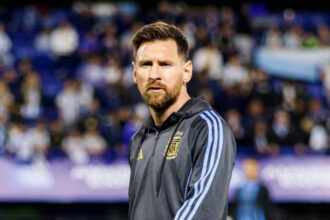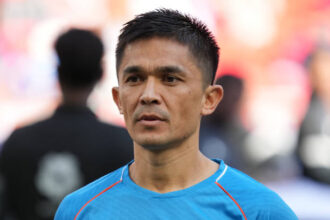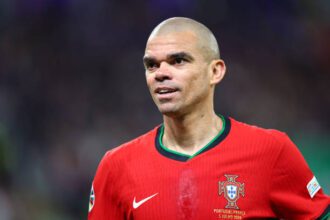Pepe: The Uncompromising Pillar of Portuguese Football
Képler Laveran de Lima Ferreira, mononymously known as Pepe is one of the toughest defenders in contemporary football. Born on 26 February 1983 in Maceio, Brazil, the history of this player from the streets of Brazil and his rise to be the columna vertebral of Real Madrid and the Portuguese National team has been etched in resilience, dedication, and unbending passion for the game.
Early Life and Modest Beginning
Born in the coastal city of Maceió, in northeastern Brazil, Pepe had grown up in a culture that didn’t consider football as only a game but as life itself. His parents, Anael Feitosa Ferreira and Rosilene de Lima Ferreira, introduced him to playing the sport at an early age. As he played on sandy pitches barefoot, he was shaped into becoming a tough and aggressive player who would later define his professional career.
It was in such challenging times that Pepe’s parents helped foster the boy’s natural talent, fully aware of his enormous potential in transcending their humble abodes. The gifted youth was drafted into Sport Club Corinthians Alagoano’s academy at 16 to step into international limelight .
Pepe fulfilled his intention of migrating to Portugal and, with the start of an upward trajectory associated with Marítimo.
In 2001, in search of new opportunities, Pepe made the step move to Portugal-a country that has solid links with Brazilian players. He was contracted to C.S. Marítimo-the club on the island of Madeira. The adaptation was hard-getting accustomed to the new culture and language, the latter that his Portuguese teammates do not use, but also that of handling playing levels was impossible to resist for Pepe.
He started with Marítimo B, but did not take too long to establish himself as an established defender. He worked his way up to the first team and, subsequently began his rise through European football when he started in the Primeira Liga. Pepe become a regular member of the Marítimo defense during three seasons. He became known for being robust in the air, fierce in his tackling and surprisingly composed when in possession of the ball for a center-back.
Transfer to FC Porto: Consolidation
Winning some impressive performances, Pepe attracted the eye of the élite clubs in Portugal, and in 2004, a move to one of the best teams in the country, FC Porto, occurred. With coach José Mourinho and others after him, Pepe has developed well in Porto and achieved the following:
Primeira Liga Titles: 2005–06, 2006–07 Taça de Portugal: 2005–06
Further down the road, he joined Porto, where he provided quite an excellent partnership with another defensive giant of Ricardo Carvalho. Given his reading of the game and physical control, he became a nightmarish option for opposing forwards. The performances were inspiriting both in domestic as well as European cups. This led to the next giant step in his career.
Real Madrid: A decade of excellence
In 2007, Pepe signed for Real Madrid reported as costing €30 million, an indicator of his rising stature. He was to spend the next ten years on one of football’s grandest stages. A La Liga Championship, ten in all, and three UEFA Champions League Titles along with two Copa del Rey Victories ensued at Real Madrid:
Pepe’s relationship with Sergio Ramos became one of the most successful and exhilarating defensive partnerships in football history. It managed to bring a superb blend of great skill, aggression, and leadership that helped their beloved Real Madrid masters win various domestic titles and the European cup within a significantly short period. Pepe was an attacking force on set plays but was spectacularly skilled enough as a defender.
However, Pepe’s sojourn in Spain was never free of controversy. His belligerent nature always saw him booked for brawls, and some cases, in particular, were known due to the severe level of punishment. For example, a brawl with Getafe’s Javier Casquero in 2009 created a ruckus and showed the volatile temperament that he took the game along with him. However, teammates and coaches always defended him, saying that he was professional and that the game had an extreme intensity.
Career with Portugal International
Pepe lived in Portugal from the year 2001 and was naturalized in 2007 and was then deemed fit to play for the national team of Portugal. On 21st November 2007, he made his first and very long international career against Finland.
Pepe’s appearance on the team proved to be immediate and significant for the team.
On the UEFA Euro 2008: Pepe scored his first goal at an international level in Turkey and uncovered his attacking ability.
UEFA Euro 2012: He belonged to the Team of the Tournament; he supported Portugal in achieving the semifinals.
UEFA Euro 2016: One of his crowning moments in international football Pepe played a crucial role when Portugal secured its first major tournament victory in history. He was flawless at the defensive end as Portugal won the final game against France. Hence, Pepe was honored with the Man of the Match award.
UEFA Nations League 2018–19: Contributed to Portugal’s first-ever victory.
FIFA World Cup: Presented for Portugal in several World Cups that include; 2010, 2014, 2018, 2022; this has provided Portuguese players with more experience and leadership.
The player further supported the national team in other ways outside the pitch. He acted as a mentor and unifier to the younger players, showing them that the same aspect of resilience he showed over many years is what took him this far.
After ten years for Real Madrid, Pepe joined Turkey’s Beşiktaş J.K. in 2017. In the Süper Lig, he again proved his usual solidity; nonetheless, the duration was rather short.
Pepe returned to FC Porto, from where his career began, in January 2019. Though being in the mid-30s, Pepe proved class, and Porto’s home successes were somewhat characterised by:
Primeira Liga Titles: 2019–20, 2021–22
Taça de Portugal Titles: 2019–20, 2021–22
For the group, Pepe’s years of experience and leadership were pure gold dust. He had adapted his game to compensate for the inevitable physical decline with age by using positioning and game intelligence instead.
Playing Style and Impact:
Aggressiveness and Aerial presence: Pepe is keen on confrontation and likes to impose himself
Aerial excellence: He wins several aerial challenges and is a threat to both opposition for his defensive and attacking set piece play.
Tactical Awareness: Has a good view of the match and repeatedly interrupts opposition passes and offers the team a threat by breaking up the play.
Versatility: Although essentially a center-back, he has played occasionally as a defensive midfielder.
His style of playing has inspired a whole generation of defenders who admire both the hardness of his tackling and his technical quality. Coaches have remarked about his professionalism and dedication to training and preparation for matches.
Personal Life and Character
Pepe is very low-key and humble off the pitch. He has been married to Ana Sofia Moreira since his early days, when he joined Portugal. He has two daughters named Angeli and Emily with whom family life would be very important as well.
Pepe’s philanthropic works comprise deprived community service and football coaching for developing young minds. Very few went to international stardom from such deprived backgrounds, and he has gone ahead to talk numerous times on work and perseverance.
Legacy and Awards:
A collection of individual honours adorns Pepe’s career:
UEFA European Championship Team of the Tournament: 2008, 2012, 2016 UEFA Champions League Squad of the Season: 2013–14, 2015–16
Primeira Liga Defender of the Month: Earned several honours since returning to Porto
Few players can stay at the top for that long, and being a player who is still showing his skills up to late 30s is a very true indication of the discipline shown by him for football .
Importance to Portuguese Football
Outside of his clubs and national team, Pepe is a harbinger of the full assimilation of foreign-born players into Portuguese football, an assimilation that goes well to further boost its development and guarantees success in international competitions. He has been decisive at times of change for the national team, especially when some of the other key players retired.
Conclusion:
A Legacy of Determination
Pepe’s story is an account of overcoming hard obstacles and beating expectations. From his Brazilian beginnings as an unreported name to finding fame in European football, his career reflects hard work, resilience, and a beyond-tough spirit. Despite those moments of indiscipline in the book, no one can dispute what he has contributed on the field or his quality leadership.
This makes him a hero to young aspiring footballers, who watch in awe as he continues to play. His journey, therefore, underscores that success is not only defined by talent but also through dedication, adaptability, and relentless pursuit for excellence. Whether the world reeve or begrudges him, Pepe’s impact on football, after all, will last long beyond his boots hanging on its wall.
He will forever be remembered as an uncompromising legend, whose contributions transcended the game itself.









